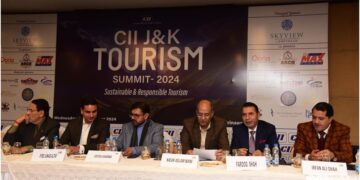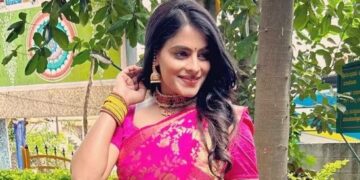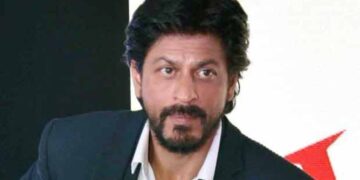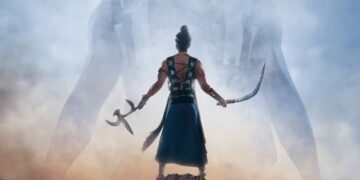National Conference (NC) leader Omar Abdullah, 54, is leading the campaign of Jammu and Kashmir (J&K)’s oldest party for the first assembly elections in the region since it was stripped of its semi-autonomous status in 2019 with the nullification of Constitution’s Article 370 and split into two Union Territories. A third-generation politician from the Abdullah family and a former chief minister, Omar Abdullah spoke to HT in Srinagar about the NC-Congress alliance, his poll pitch, independent candidates backed by the banned Jamaat-e-Islami (J&K), and why he is upbeat about his party’s poll prospects. Edited excerpts:
It is a mixed bag as all elections are. No election is entirely one-sided. Every party is trying to convince the voters that they are the best option. But, in terms of manifesto, roadmap, and agenda, the NC has set the benchmark. Other parties have either copied it or are using its criticism to appeal to their voters. We are in alliance with Congress which is not something we are used to. It was not the easiest thing for both parties. We had to give them seats where we were reasonably well-placed. The same is true for them as well. The last time the NC-Congress had a pre-assembly poll pact was in 1987. This [2024] election is also unique in recent times because the banned Jamaat-e-Islami [J&K] is openly backing and campaigning for independent candidates owing allegiance to it. This is a huge change from previous elections. Otherwise ever since I have seen politics here from 1996 onwards, Jamaat has been at the forefront of trying to stop people from voting.
Traditionally, the Jamaat vote has never come to NC. Despite their poll-boycott stance, wherever the Jamaat has covertly played a political part in the last three decades, its supporters have gone to parties like the People’s Democratic Party (PDP). Now, with Jamaat fielding its nominees, it will dent the PDP in a number of seats where Jamaat is the deciding factor, particularly in South Kashmir.
In an immediate sense, our fight is to get back our statehood undiluted. That is the primary concern for the people today. What was done with regard to [Constitution]’s Articles 370 and 35-A was an insult. But, an insult to the injury was heaped by reducing J&K to a Union Territory. All this was without any explanation whatsoever and with no benefit coming out of this. On a wider political fight for the special status of J&K which is part of NC’s ideology, we are realistic enough to know that this is not going to happen with this assembly or this government at the Centre. But, we are going to keep the issue alive. It is a long struggle.
It is not a major issue. It will be unfair to people, who have been denied an elected government since 2018 and have suffered on account of poor administration, to make this election purely about Article 370. They also want to know what we will do to address a host of issues they face on a daily basis such as employment, education, health, electricity, water, and development. That is why our manifesto goes far beyond the political issue of autonomy.
At the end of the day what has happened to J&K is at the behest of the government and judgement of the Supreme Court [SC]. Those things are subject to change. They are not the word of God. In the future, there may be a government at the Centre willing to discuss our demand for autonomy. Tomorrow there could be a full bench of SC to adjudicate differently. We want to keep this issue alive in the hope that in the future, circumstances may change and allow us to revisit it.
My first instinct, and for the longest time the only instinct that I had, was that I would not contest. I did not have the best of things to say about either the UT [Union territory] assembly or whatever government was to be elected. The assembly we are electing now is far from the one we want or deserve. That said, I was made to realise by people, obviously far wiser than me and not necessarily connected to NC or politics…. They said if this assembly was not good enough for you, why do I want them to vote for it? And I genuinely had no answer. How do I go to voters and tell them to please elect my candidate but I do not want that status? That would have been hypocritical and wrong. This is not the assembly we are going to accept but it is through this assembly we will get back our statehood.
In Kashmir, it will probably be the PDP, and in Jammu the BJP [Bharatiya Janata Party]. In a handful of seats, some odd independents or smaller parties will play a part. For all of Delhi’s attempts to cleanse the political landscape of mainstream parties or the so-called dynastic parties by propping all sorts of parties and individuals here, ultimately J&K’s politics will go back to NC, Congress, PDP, and BJP. Smaller elements will play a role on fringes.
The biggest beneficiary of this will be the BJP which has said as much that if they fall short of numbers to form the government, they would get the help of smaller parties. The ones they are silent about but are open to doing business with are the Apni Party, People’s Conference, Engineer Rashid’s party, and independents. A vote for independents is a vote for BJP. There are so many instances of the BJP weaning independents and overturning the people’s mandate. J&K will be no different. God forbid, if the people elect too many independents, they will go straight to the BJP’s lap.
Difficult to predict that at this stage. Jamaat could be one in the Valley. Three months earlier, we had an X-factor in the Baramulla Parliamentary election that nobody saw coming. I have not seen yet any signs of hawa [wave] that propelled a jailed Engineer Rashid to victory against me [in Lok Sabha polls]. But that does not stop an X-factor from emerging because we are still in the early stages of the campaign and there are a few days to go for the first phase of polling. The Engineer Rashid factor had caught fire at the fag end of electioneering.
It will certainly make the elections more participative. One expects the Jamaat cadre would come out and vote. The NC cadres will not sit at home either. During the poll boycott times, the NC cadre was reluctant to vote because they feared the reprisals. That is not the case now.
For us, a lot of impetus for this alliance was about the perception rather than the seats. In terms of seats, NC does not gain as much from the pact as Congress does. Allying with Congress became almost vital for us in light of a recent high court order that struck down an Enforcement Directorate’s case against my father [Farooq Abdullah]. Some of our political opponents went to town calling it evidence of an underhand deal between the BJP and NC. To convince the people that we are not hand in glove with the BJP and will go all out to defeat the party, an alliance with Congress became very important for us. We have an understanding regarding 84 of 90 seats. That we have managed to get this is not a bad thing.
What will we get by destabilising our state except for a tag of failure? On such a wild statement that we will allow militancy to come back, I would like to ask Shah, who believes in numbers, to look at the graph of militancy in six years when I was chief minister and compare it with the last five years of rule under Lt Governor. I would hazard a guess that in my time the graph was downward slopping, and in the last five years it is upward slopping. Today, Jammu is a troubled area which will be a big challenge for an elected government. The BJP needs to explain how they allowed a new life to militancy in Jammu.
If the pattern of the voting in the last Lok Sakha polls is repeated, then the BJP is not as comfortably placed as it claims to be. Their vote share has gone down severely. In the 2019 Lok Sabha contest, they won both Jammu and Udhampur [seats] by 300,000 plus votes. In 2024, the margins were half of that. One hopes the Congress can win a good number of seats there.
I have more support from my father now than I had in 2014. Then, he was in London for his kidney transplant and did not campaign. This time he is around and campaigning. I would say 75% is mine and 25% his. But, his share assumes much greater significance than mine.
That is like putting the cart before the horse. First, we will have to get a majority. Then we will talk about the chief minister.





















